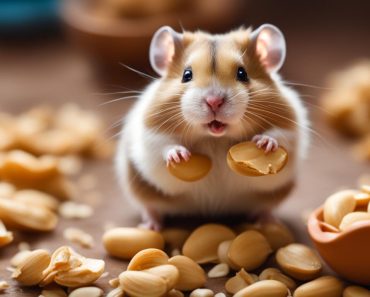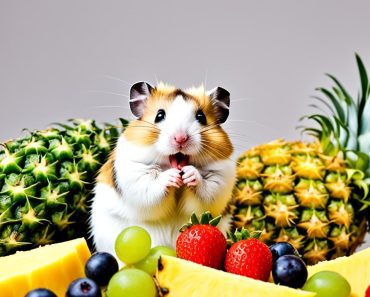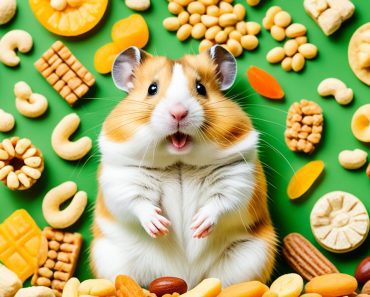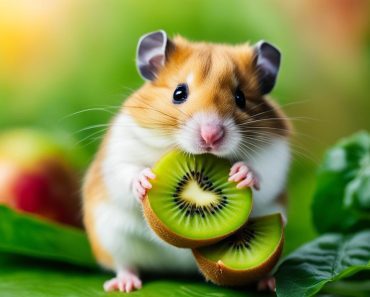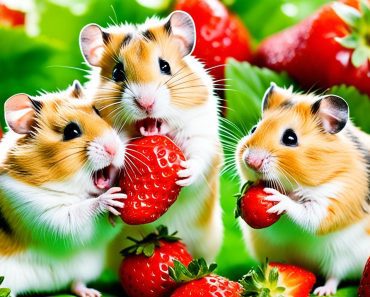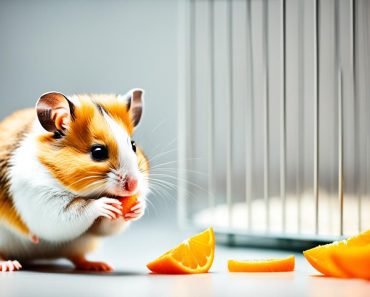When it comes to keeping our furry friends happy and healthy, it’s essential to provide them with a balanced and species-appropriate diet. As a hamster owner, you may be wondering if raisins are a safe and suitable treat for your little companion. Let’s explore the topic and discuss some safe feeding tips to ensure your hamster’s well-being.
Can Hamsters Eat Raisins? Yes, they can. But it is not recommended.
- Raisins are not toxic for hamsters but should be avoided due to potential risks.
- Hamsters have specific dietary requirements that include pellets, hay, fresh fruits and vegetables, occasional treats, and water.
- Raisins are high in sugar and lack necessary fiber, protein, and fat levels for hamsters.
- Offer safe alternatives like cherries, papaya, raspberries, pear, melon, strawberries, or honeydew as occasional treats.
- If unsure, consult with a veterinarian for personalized advice on your hamster’s diet.
The Safety of Raisins for Hamsters
Raisins are commonly consumed as a healthy snack by humans, but what about hamsters? Are raisins safe for hamsters to eat? Let’s explore the risks and potential dangers of feeding raisins to our furry friends.
Raisins are not toxic for hamsters and do not pose immediate harm. However, it is important to consider the potential risks that come with feeding raisins to hamsters. Experimental tests on hamster ovary cells have shown adverse effects from the extracts of dried fruits, including raisins. While these tests were not conducted on live hamsters, they raise concerns about the impact that raisins could have on a hamster’s health.
The risks associated with feeding raisins to hamsters include:
- Obesity: Raisins are high in sugar, and excessive consumption can lead to weight gain and obesity in hamsters.
- Detrimental naturally occurring sugars: While raisins are a natural source of sugar, too much sugar can be harmful to a hamster’s health.
- Lack of necessary fiber: Raisins lack the fiber that hamsters need for proper digestion and overall gut health.
- Potential cheek impaction issues: The sticky texture of raisins can pose a risk of cheek impaction for hamsters, especially if they are consumed in large quantities.
- Possibility of spoilage: If raisins are not promptly removed from the hamster’s enclosure, they can spoil and cause further health issues.
Considering these risks, it is generally recommended to avoid feeding raisins to hamsters and opt for alternative treats that offer a better balance of nutrition and safety.
Benefits of Raisins for Hamsters
Although raisins may not be nutritionally beneficial for hamsters due to their high sugar content, they do offer some advantages.
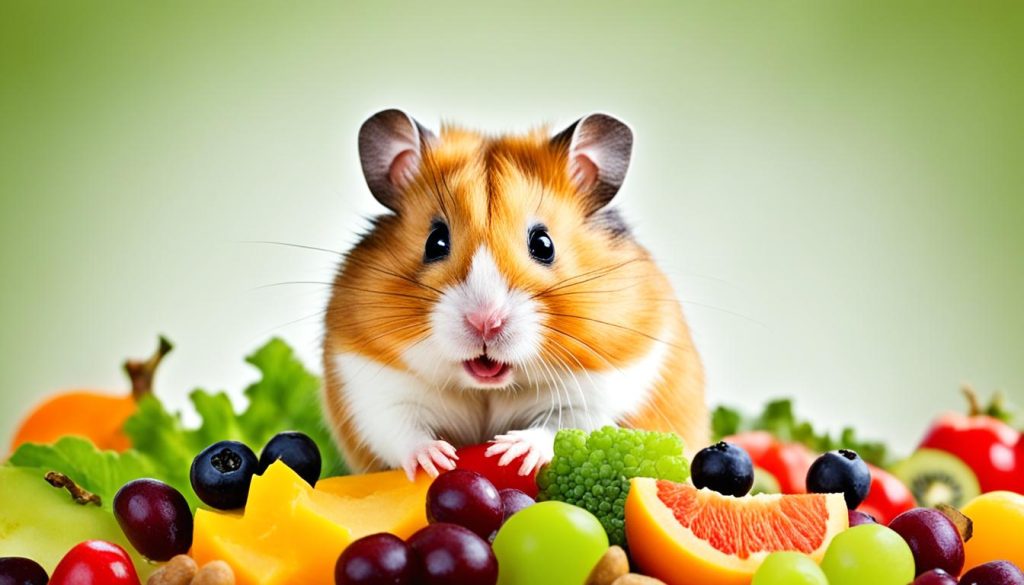
Raisins are rich in antioxidants, which can help decrease the side effects of aging in hamsters and boost their immune system. These antioxidants assist in protecting cells from damage caused by harmful molecules called free radicals.
In addition to antioxidants, raisins contain essential vitamins A and B, which are known to strengthen the immune system. Vitamin A is essential for maintaining healthy skin, while vitamin B aids in energy production and overall cell health.
Raisins also provide iron, a crucial mineral for hamsters. Iron plays a vital role in the production of red blood cells, improving blood flow and reducing the risk of heart diseases in hamsters.
Although these benefits exist, it is important to consider the potential risks associated with raisin consumption and offer them in moderation as occasional treats for your furry friend.
Recommended Alternatives to Raisins for Hamsters
If you prefer to avoid feeding raisins to your hamster, there are several safe alternatives that you can offer as treats. Cherries, papaya, raspberries, pear, melon, strawberries, and honeydew are all suitable options. These fruits provide variety and can be given as occasional treats to spice up your hamster’s diet. Remember to introduce new treats gradually and monitor your hamster’s reaction to ensure they are well-tolerated.
When it comes to providing safe treats for your hamster, it’s important to offer alternatives to raisins. While raisins may not be directly harmful, the risks associated with high sugar content and potential adverse effects from dried fruit extracts make it better to avoid them. Instead, try incorporating a variety of fruits into your hamster’s diet.
Cherries are packed with antioxidants, which can benefit your hamster’s immune system. Papaya is a great source of vitamin C. Raspberries and strawberries offer important vitamins and minerals as well. Pears, melons, and honeydew are hydrating and provide natural sugars that are better balanced for your hamster’s health.
Introducing new treats to your hamster’s diet should be done gradually. Start by offering small pieces of the chosen fruit and observe your hamster’s reaction. If they enjoy the new treat and show no signs of digestive issues, such as diarrhea, you can continue incorporating it into their diet as an occasional treat. Remember, moderation is key, and treats should never replace the main elements of your hamster’s diet, such as pellets, hay, and fresh vegetables.
By offering safe and nutritious alternatives to raisins, you can ensure that your hamster’s treat time remains enjoyable while supporting their overall well-being. So, go ahead and treat your furry friend to some delicious and healthy fruits!
Feeding Tips for Hamsters
When it comes to feeding your hamster, it’s essential to provide them with a healthy and balanced diet. Here are some hamster feeding tips to ensure your furry friend stays happy and healthy:
- Offer fresh drinking water: Make sure your hamster always has access to clean, fresh water. Change the water daily to prevent bacteria growth.
- Monitor water intake: Keep an eye on your hamster’s water intake. If you notice a significant decrease or increase in their water consumption, it could indicate a health issue, so consult with a veterinarian.
- Remove food remnants: Regularly clean your hamster’s food dish and remove any uneaten food to avoid spoilage and the growth of bacteria or mold.
- Avoid overfeeding on vegetables: While vegetables are an important part of a hamster’s diet, overfeeding on them can lead to diarrhea. Offer a variety of vegetables in small quantities.
- Be cautious with sugary fruits and treats: Fruits and treats should be given in moderation to prevent obesity. Limit the amount of high-sugar fruits and opt for healthier alternatives.
- Introduce new foods gradually: When introducing new foods to your hamster’s diet, start with a small amount and observe their reaction for a week. Sudden changes in diet can cause stress, so take it slow.
If you have any doubts or questions about your hamster’s dietary requirements, don’t hesitate to consult with a veterinarian. They can provide personalized guidance based on your hamster’s specific needs and help ensure they’re getting the right nutrients for optimal health.
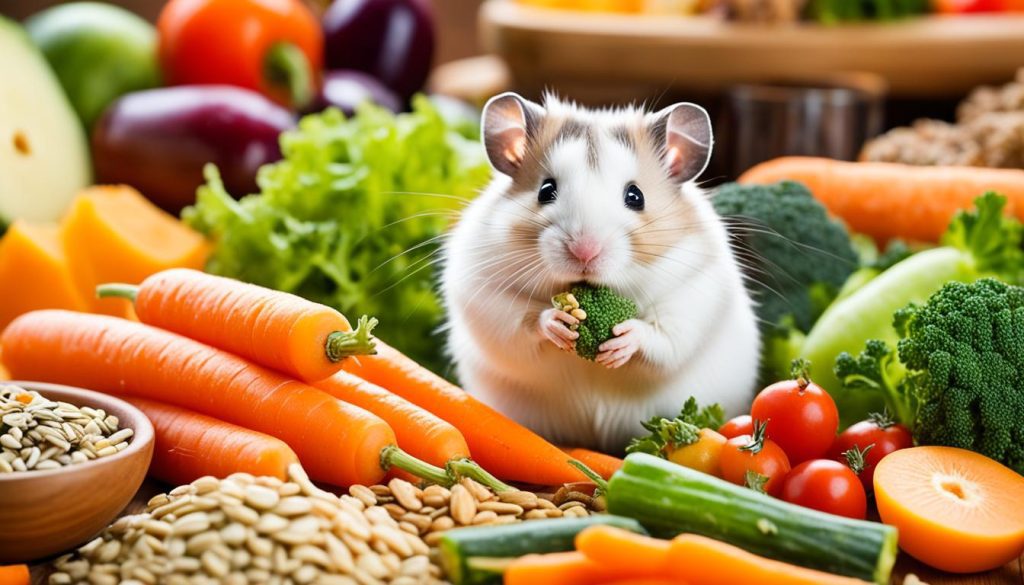
Considerations for Dwarf Hamsters
Feeding raisins to dwarf hamsters is not recommended, even in small quantities. The risks associated with raisins, such as obesity, diabetes, and kidney problems, are greater for dwarf hamsters. The stickiness of raisins can also pose a choking hazard for these smaller hamsters. It is best to avoid feeding raisins to dwarf hamsters and opt for other suitable treats or fruits for their enjoyment.
Conclusion
After considering the potential risks and benefits, it is advisable to refrain from feeding raisins to your hamster. While raisins are not toxic to hamsters, their high sugar content can lead to obesity, diabetes, and kidney problems when consumed in excess. Research on hamster ovary cells suggests potential harm from dried fruit extracts, including raisins. To ensure your hamster’s well-being, opt for safe alternatives like cherries, papaya, raspberries, pear, melon, strawberries, or honeydew as occasional treats. These fruits provide variety and can contribute to a balanced hamster diet.
If you have concerns or questions about your hamster’s specific dietary needs, it is always best to consult with a veterinarian. They can provide personalized advice based on your hamster’s health, age, and individual requirements. Prioritizing your furry friend’s health is crucial, and making informed choices about their nutrition is essential for their overall well-being.
While raisins may seem like a tempting treat for your hamster, the potential risks outweigh the benefits. Consider the long-term effects of their high sugar content and potential adverse effects on your hamster’s health. By providing alternative safe and nutritious treats, you can ensure your hamster enjoys a balanced and healthy diet.

